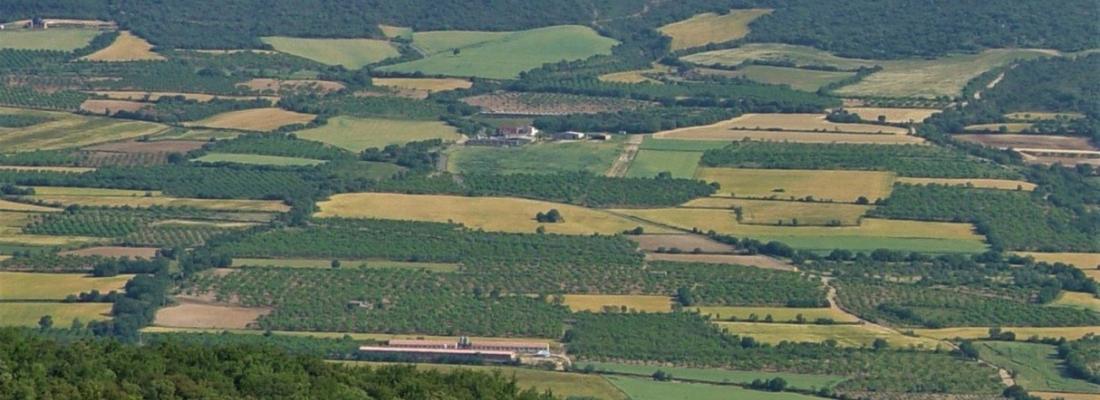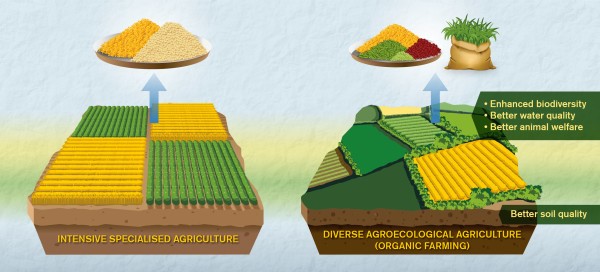Agroecology Reading time 2 min
Comparisons between organic and conventional agriculture need to be better
Published on 17 March 2020

The most common method for assessing the environmental impacts of agriculture and food is Life Cycle Assessment1 (LCA). Studies using this method sometimes claim that organic agriculture is actually worse for the climate than conventional agriculture, because it has lower yields, and therefore uses more land to make up for this. For example, a recent study in Nature Communications made this claim2.
But according to three researchers from France, Denmark and Sweden, presenting a critical analysis of many LCA studies, this implementation of LCA is too simplistic, and misses some of the major benefits of organic farming.
Firstly, their analysis shows that current LCA studies rarely account for biodiversity, which is of crucial importance for ecosystem health and resilience. However, it is declining worldwide, and intensive, conventional agriculture has been shown to be one of the main drivers of negative trends such as insect and bird decline. Agriculture occupies more than one-third of global land area. Therefore, any links between biodiversity losses and agriculture are extremely important. Earlier studies have already shown that organically managed fields support biodiversity levels approximately 30% higher than conventionally managed fields. Furthermore, between 1990 and 2015, pesticide use worldwide has increased by 73% and pesticide residues in soils and in water and food can be harmful to human health, terrestrial and aquatic ecosystems, and cause biodiversity losses. Organic farming precludes the use of synthetic pesticides. But few LCA studies account for these effects.
Moreover, land degradation and lower soil quality resulting from unsustainable management of agroecosystems is also an issue, which, once more, is seldom considered in LCA studies. The benefits of organic farming practices such as the use of more diversified crop rotations and organic fertilisers are often overlooked in LCA studies.
Crucially, LCA generally assesses environmental impacts per kilogram of product. This favours intensive, conventional systems that may have lower impacts per kilogram of product, while having higher impacts per hectare of land. LCA also needs a more fine-grained approach, considering ecological processes, adapted to local soil, climate and ecosystem characteristics.
Current LCA methodology and practice is simply not good enough to assess agroecological systems such as organic agriculture. It therefore needs to be improved and integrated with other environmental assessment methods to get a more balanced picture and to better support political decision-making.

|
Reference Van der Werf, H.M.G., Trydeman Knudsen, M., Cederberg, C. Towards better representation of organic agriculture in life cycle assessment. Nature Sustainability (2020) doi: 10.1038/s41893-020-0489-6 |
1 Life cycle assessment (LCA) is a standardized assessment method for carrying out a multi-criteria environmental assessment of a system or product over its entire life cycle.
2 Smith, L.G., Kirk, G.J.D., Jones, P.J. et al. The greenhouse gas impacts of converting food production in England and Wales to organic methods. Nat Commun 10, 4641 (2019) doi: 10.1038/s41467-019-12622-7
